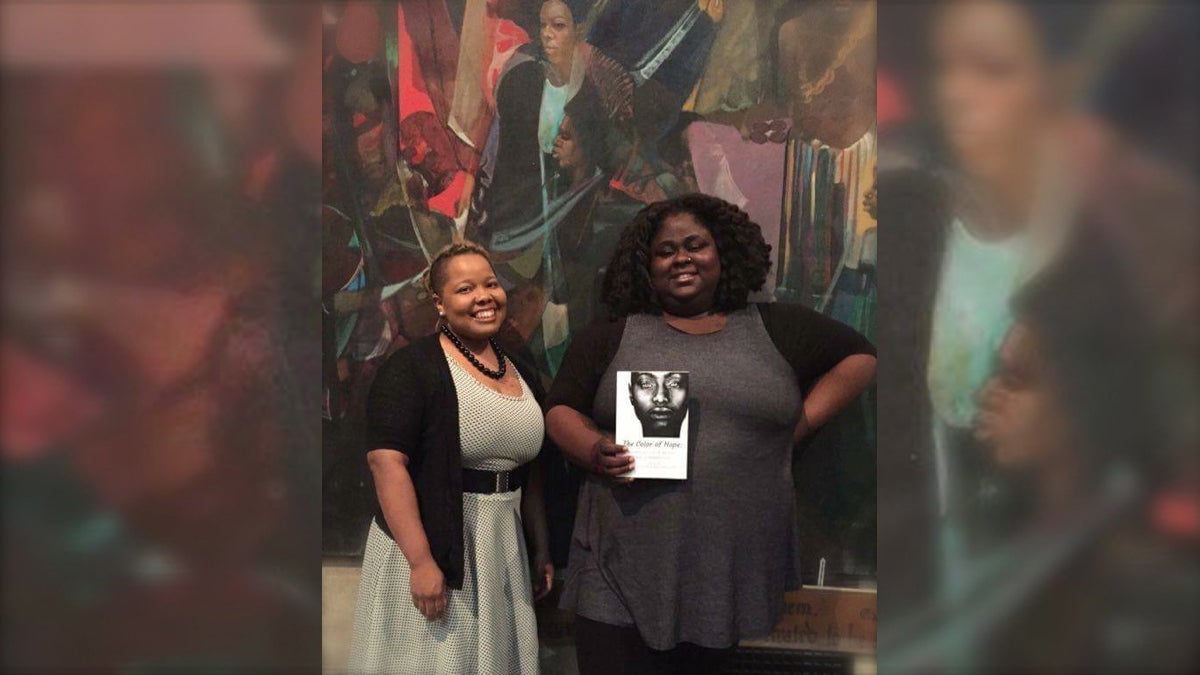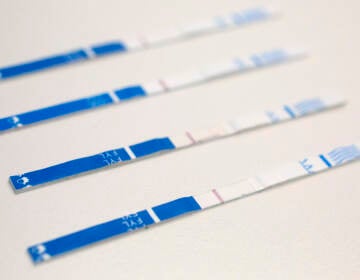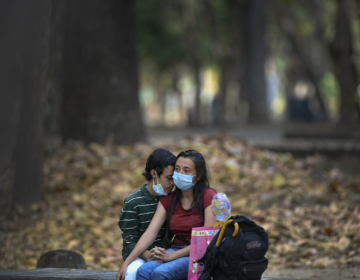Philly women of color offer stories of hope amid struggle for mental health

Vanessa Hazzard and Iresha Picot pose with a collection of stories they edited called 'The Color of Hope.' (Photo courtesy of Picot)
Vanessa Hazzard and Iresha Picot want more people of color to feel comfortable talking about mental health care.
Statistics show that African-Americans and Hispanic people are half as likely to seek mental health care than their Caucasian peers. People of Asian descent are even less likely to talk to a therapist.
Both Philadelphia women agree that in order to start the conversation, you need visibility.
“I’m a co-parenting mom, I work, starting my own business, but I struggle each and every day with bipolar disorder and PTSD,” said Hazzard. “And even though I take care of myself, it’s hard. And a lot of people are in that same boat.
“And seeing people like us who are functional but still mentally ill — it’s important that we’re seen and people know we exist,” she said.
That’s why they co-edited a book of stories, “The Color of Hope: People of Color Mental Health Narratives,” from people who manage office life, serve jail time, and drive kids to school — all while dealing with some kind of mental illness themselves or within their families.
They chose to focus on communities of color because recent surveys show less than 20 percent of psychologists identify as a minority. Yet, African-Americans are three times more likely to need mental health care. And, if they live in poorer neighborhoods, there are typically fewer places to get help.
Picot said the lack of resources is compounded by community pressure to be self-reliant.
“I realized that when I was doing adult therapy … especially talking about black and brown people, there’s this whole thing about being strong, especially if you’re a woman,” said Picot. “If you seem like you’re breaking down a little bit, there’d be all this judgment and criticism. So I was really the only person that they could be like ‘No, this stuff is hard. I need help.'”
Hazzard and Picot recently led a seminar at the Community Futures Lab in Philadelphia for women of color looking to learn more about mental health. Hazzard, a massage therapist, created a handout with self-care relaxation techniques.
Both hope the book gives professionals more perspective, and that it encourages everyone else share their experiences.
“We always tend to pinpoint a diagnosis and say, ‘Oh, that person is crazy,'” explained Picot. “But the reality is, when we’re talking about depression, stress-related disorders — that’s the everyday person. That’s me and you, the lady who lives across the street from me, just trying to live life.”
WHYY is your source for fact-based, in-depth journalism and information. As a nonprofit organization, we rely on financial support from readers like you. Please give today.




